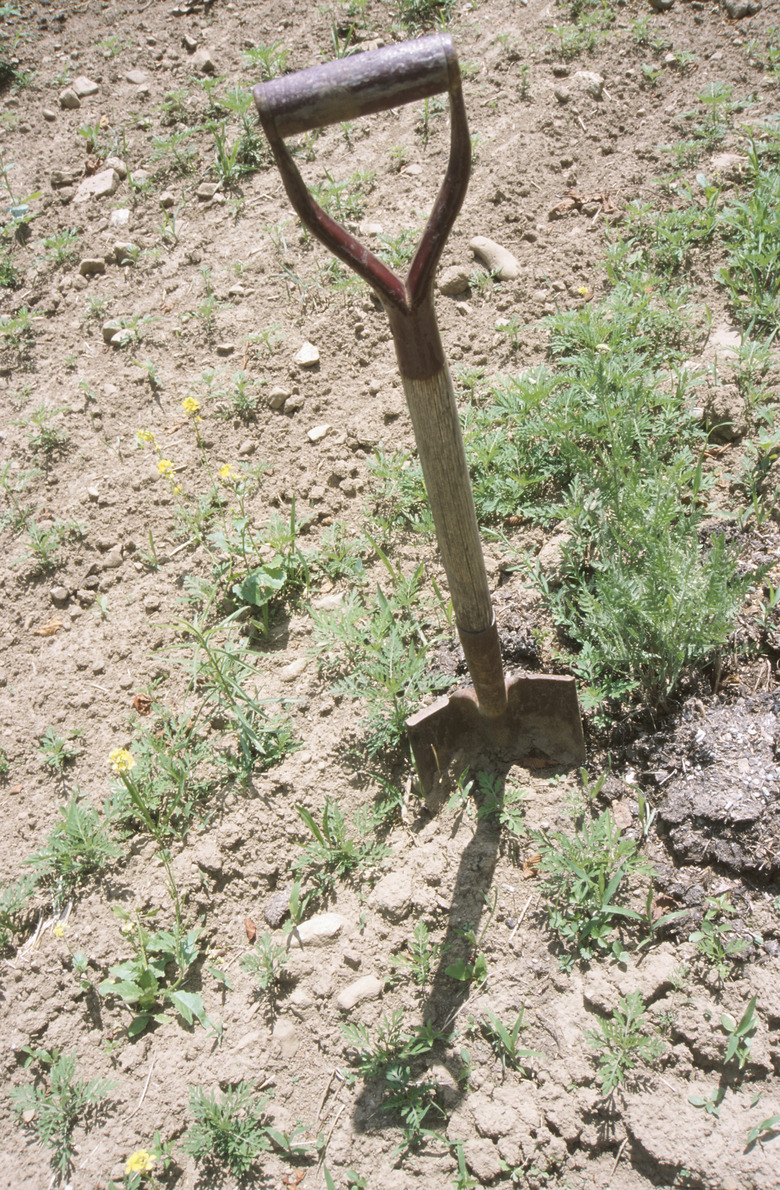Wood Vs. Fiberglass For A Shovel Handle
For centuries, shovel handles were made of wood, and that was good enough for the workers who used them. The invention of fiberglass changed all that, and fiberglass shovel handles have become a common alternative to handles made with the traditional material. Wood still has its advantages, though, and fiberglass has not yet cornered the shovel handle market.
Wood Handle Construction
Wood Handle Construction
Wooden shovel handles are turned or carved from a single piece of hardwood. The best woods for use as handles are those that are strong, relatively dimensionally stable and resistant to rot and damage from exposure to the elements. Ash, beech, cherry and black locust are strong, heavy hardwoods that are sometimes used in handle construction, but hickory has historically been the most prized wood for shovel handles, as well as the handles of other hand tools. Hickory is prone to splitting, but it is tough and strong.
Fiberglass Handle Construction
Fiberglass Handle Construction
Fiberglass shovel handles are made by extruding fiberglass resin into a hollow tube the shape and length of the handle. Pigment is added to the resin in the manufacturing process, allowing fiberglass handles to be produced in a variety of colors. The handles are reinforced with interior plugs at points where stress could lead to failure of the handle, and the end of the handle is usually finished with a vinyl cap or a metal D-shaped handle.
Advantages and Disadvantages of Wood
Advantages and Disadvantages of Wood
If properly maintained, wooden shovel handles are sufficiently strong and can last a long time. They are easy to replace if they are worn or damaged, and they can be repaired with wood glue if the damage is minor. Wooden handles, however, are subject to weathering, cracking and splitting, and they may rot in wet or damp conditions. They are heavy compared to fiberglass handles, and if they are improperly repaired or replaced, they can break relatively easily.
Advantages and Disadvantages of Fiberglass
Advantages and Disadvantages of Fiberglass
Fiberglass shovel handles are generally more durable than wooden handles. They are not subject to rot or weathering, and unlike wooden handles, they will not shrink or expand with variations in humidity. They are less likely than wooden handles to break as a result of impact. If they do break, however, fiberglass handles are more difficult to replace than wooden handles, and replacement handles are not widely available.
